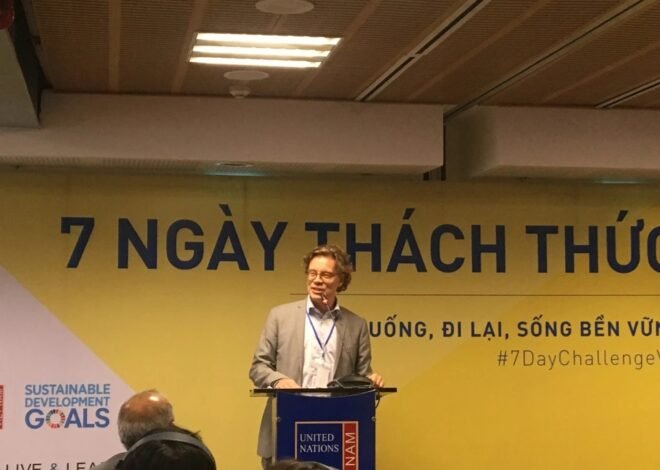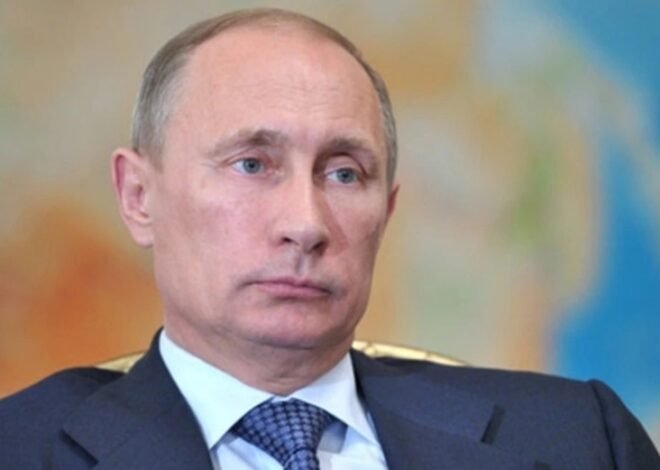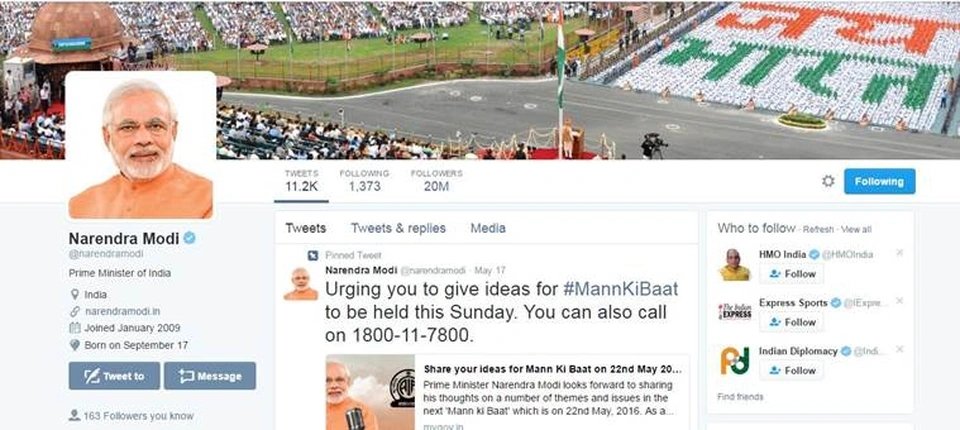
Indian politicians are `addicted` to diplomacy on social networks
(Dan Tri) – Indian diplomacy is currently moving in the direction of openness and increased interaction after the government decided to apply social networks to communicate with people to help solve problems.
Prime Minister Narendra Modi’s social networking site Twitter reached the milestone of 20 million followers (Photo: Indian Express)
Among the fast and effective communication methods in the world today, social networks are one of the main methods.
To be able to connect with people in difficult situations, create favorable conditions for people in tasks related to documents or passports, help foreigners in India, and at the same time become
To bridge the gap between the government and the people, high-ranking Indian officials and diplomats have mastered the skill of writing 140 characters when wanting to convey messages on Twitter.
Prime Minister Narendra Modi’s leading role
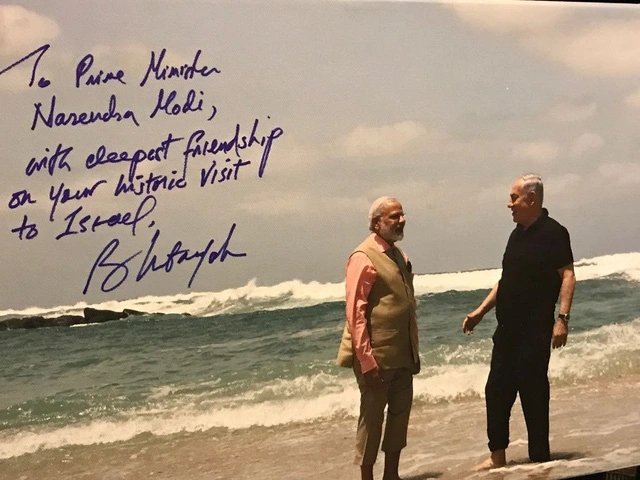
Prime Minister Modi (left) posted a photo sent by Israeli Prime Minister Benjamin Netanyahu along with a signature on Instagram on the occasion of the Indian leader’s visit to Israel.
In India, the revolutionary change made by the government and the country’s diplomatic service to official social networking platforms began in May 2014 after Mr. Narendra Modi took office as prime minister.
In just 3 years, with 32.1 million followers, Prime Minister Modi has entered the top 3 most followed world leaders on Twitter, behind only Pope Francis and US President Donald Trump.
Not only on Twitter, Prime Minister Modi is also the most followed and most active leader on Instagram with 6.8 million followers, nearly equal to President Trump with 6.3 million followers.
Prime Minister Modi often uses social networking sites to announce his foreign trips and discuss issues of concern to him.
In a conversation with Facebook boss Mark Zuckerberg in 2015, Prime Minister Modi emphasized the importance of social networks to his government.
The Secretary of State took the lead
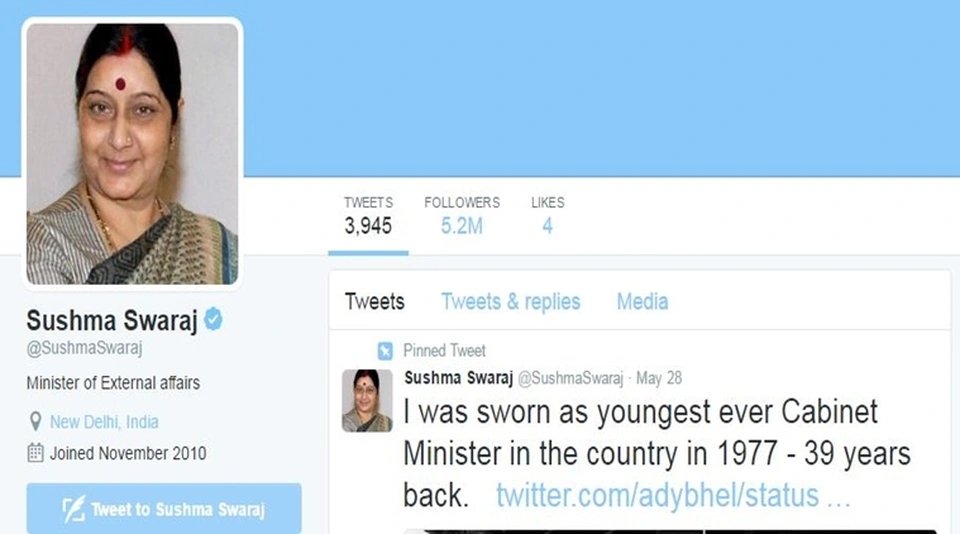
Foreign Minister Sushma Swaraj’s Twitter account has the most followers among foreign ministers in the world (Photo: Indian Express)
Thanks to social networks, Indian diplomacy has transformed from a closed and conservative style to a more positive and interactive style.
Surpassing foreign ministers of all countries in the world, Ms. Swaraj is currently the most followed foreign minister on Twitter with 8.75 million followers.
The Indian Ministry of Foreign Affairs has established a mechanism to handle the case through the social network Twitter to support the people.
The above actions not only help the Indian government create trust among the people, but also contribute to forming an effective governance environment for the government, giving power to the people, eliminating bureaucracy and helping solve problems.
Foreign Minister Swaraj’s Twitter page operates 24/7 with many interactive activities between the head of Indian diplomacy and the public.
Foreign Minister Swaraj is famous for responding to people’s requests very quickly, even at special hours like 2 or 4 am.
Twitter diplomacy
India’s success story in applying social networks to government operations is not only reflected in the increasing number of followers but in the number of problems resolved effectively and with speed.
Because the government is active on social networks, Indian people are also regularly updated on the country’s foreign affairs situation, such as the government sending naval ships to the Maldives, responding quickly to the earthquake in
Social networks are also a way for Indian leaders to connect with world leaders, in addition to traditional rituals.
Thanks to social networks, Twitter diplomacy has become the new face of Indian diplomacy with the motto: fast, fun and effective.
Success
Synthetic

